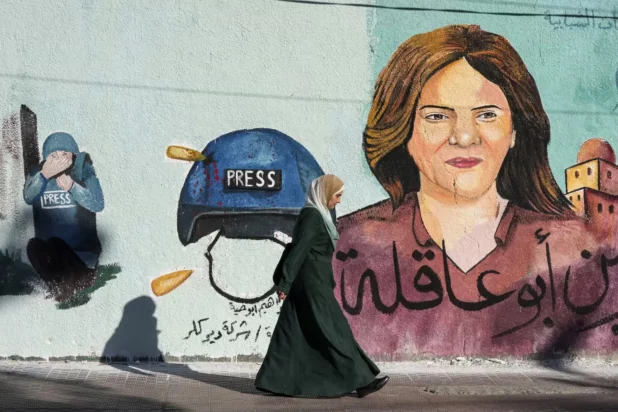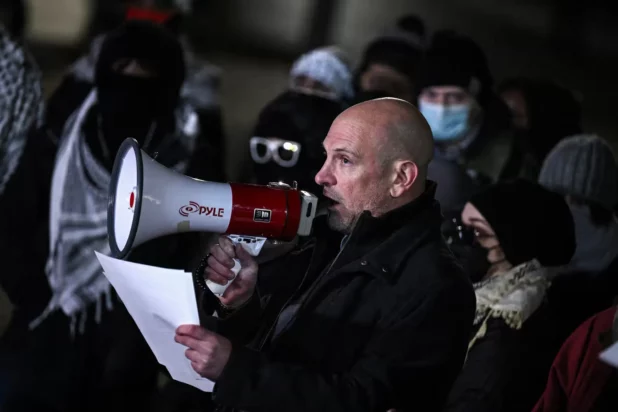The Jews need money.
Somebody has to pay for these Jews.
What with the Holocaust and all, how could anyone refuse to pay for these Jews??
(This is long, but you should at least skim it and understand the way this system of paying these Jews works. It’s your money, but no US outlet will explain it in simple terms, so we have to go to The Guardian.)
Top US officials quietly reviewed more than a dozen incidents of alleged gross violations of human rights by Israeli security forces since 2020, but have gone to great lengths to preserve continued access to US weapons for the units responsible for the alleged violations, contributing – former US officials say – to the sense of impunity with which Israel has approached its war in Gaza.
An estimated 24,000 Palestinians, mostly women and children, have been killed by Israeli forces since Hamas’s October 7 attack on Israel, a death toll that has spurred condemnation of Israeli prime minister Benjamin Netanyahu and US president Joe Biden, who has been criticized for failing to rein in Israel’s “indiscriminate” bombing of Gaza.
An investigation by the Guardian, which was based on a review of internal state department documents and interviews with people familiar with sensitive internal deliberations, reveals how special mechanisms have been used over the last few years to shield Israel from US human rights laws, even as other allies’ military units who receive US support – including, sources say, Ukraine – have privately been sanctioned and faced consequences for committing human rights violations.
State department officials have in effect been able to circumvent the US law that is meant to prevent US complicity in human rights violations by foreign military units – the 1990s era Leahy law, named after the now retired Vermont senator Patrick Leahy – because, former officials say, extraordinary internal state department policies have been put in place that show extreme deference to the Israeli government. No such special arrangements exist for any other US ally.
It’s a “special relationship.”
The lack of enforcement of the Leahy law in Israel appears especially troubling to its namesake. In a statement to the Guardian, the former Vermont senator said the purpose of the Leahy law was to shield the US from culpability for gross violations of human rights by foreign security forces that receive US aid and deter future violations.
“But the law has not been applied consistently, and what we have seen in the West Bank and Gaza is a stark example of that. Over many years I urged successive US administrations to apply the law there, but it has not happened,” Leahy said.
Senator Patrick Leahy during a hearing on Capitol Hill in Washington in March 2022.
Among the incidents that have been reviewed since 2020 were the killing of Shireen Abu Akleh, the Palestinian-American journalist who was shot by Israeli forces in May 2022; the death of Omar Assad, a 78-year-old Palestinian-American, who died in January 2022 after being held in Israeli custody; and the alleged extrajudicial killing of Ahmad Abdu, a 25-year-old who was shot at dawn by Israeli forces in May 2021 while sitting in his car.
A report in Haaretz describes how, after opening fire on the car, Israeli troops pulled Abdu out, dragged him a few meters down the road, then left his bloody body in the road and departed.
In the review into Abdu’s death, which reports suggest may have been a case of mistaken identity, internal state department documents note that Israel declined to respond to questions by state department officials about the shooting.
In Omar Assad’s case, the Israeli military said last June it was not bringing criminal charges against soldiers that were involved in his death, even after he was alleged to have been dragged from a car, bound and blindfolded after being stopped at a checkpoint. The army said the soldiers would not face prosecution because their actions could not directly be linked to Assad’s death from cardiac arrest, the Associated Press reported. Assad, a US citizen, had spent about 40 years in the midwest before retiring home to the West Bank in 2009.
Internal state department documents show that the incidents were reviewed under a little-known process established by the state department in 2020 known as the Israel Leahy Vetting Forum (ILVF), in which representatives from relevant state department bureaus examine reports of alleged human rights violations by Israeli forces.
Under the Leahy law, for most countries and in most cases, a foreign military unit is granted US military assistance or training after it is vetted by the state department for any reported human rights violations. The law prohibits the Department of State and the Department of Defense from providing funds, assistance, or training to foreign security force units where there is “credible information” that the forces have committed a gross violation of human rights.
In the case of at least three countries – Israel, Ukraine and Egypt – the scale of foreign assistance is so great that US military assistance can be difficult to track, and the US often has no knowledge of where specific weapons end up or how they are used.
To close what was seen as a loophole in the law, Congress updated the process in 2019, by putting a system in place that prohibits the foreign government from providing US assistance to any unit of its security forces that the US identifies as being ineligible under the Leahy law due to a gross violation of human rights. The state department set up working groups to examine those countries where military assistance is considered “untraceable”.
But people familiar with the process who spoke on the condition of anonymity, said Israel has benefitted from extraordinary policies inside the ILVF, details of which have not previously been reported.
“Nobody said it but everyone knew the rules were different for Israel. No one will ever admit that, but it’s the truth,” said one former state department official.
First, under the Israel process, all of the parties involved in an ILVF review must reach a consensus that a potential violations has occurred, and must then be approved by the deputy secretary of state, according to three people familiar with internal deliberations. In theory, a single bureau could raise a potential violation to the deputy secretary of state level as part of a “split memo”, in which other bureaus would air their disagreement, but no such thing has occurred. Among the groups that are involved in the process are the bureau of near eastern affairs, the bureau of democracy, human rights, and labor, the bureau of political-military affairs and the US embassy in Jerusalem.
For other countries, former officials said, such a Leahy law determination is made by state department staff, does not require the consensus of all parties, and would not require notification of and approval by the secretary of state or deputy.
Second, Israel must be consulted about alleged human rights violations that are under review and has 90 days to respond to claims, creating what some former officials said were significant delays. No other country’s government must be consulted under state department procedures, former officials said.
“Part of the reason why the ILVF has never worked is that the process is so gummed up with delay mechanisms that exist for no other country,” the former state department official said.
Some experts see a connection between the US’s hands-off approach to Israel on human rights violations and Israel’s conduct in the war in Gaza. Israel receives $3.8bn in military assistance annually and the Biden administration twice bypassed Congress last month to deliver an additional $250m in weapons. Progressive Democrats led by Bernie Sanders, the independent Vermont senator, have called on aid to Israel being conditioned on the US investigating potential human rights violations by Israel in its war in Gaza.
“I think Israel feels a broad impunity when it comes to consequences within the US for its actions,” said Josh Paul, a former state department official who has emerged as a vocal critic of the Biden administration policies on Israel. “We may say that Israel should abide by international humanitarian law. We may say that it should not expand settlements. But when it comes to actual consequences, there aren’t any and I think that has given Israel at senior government levels the sense that it is immune.”
Josh Paul speaks at a rally calling for a ceasefire outside the White House in December.
Paul also sees the lack of Leahy law enforcement having an effect on how Israeli units are conducting themselves. By not pressing Israel on Leahy violations and not designating individual Israeli units as gross violators of human rights, Paul said the US has enabled a culture of impunity at the unit level, which he said “we see on the ground in Gaza today” in the actions of some Israeli soldiers, including videos that have circulated showing Israeli soldiers ransacking private homes in Gaza, destroying civilian property, and using racist language.
Nowhere is the US’s double standard on Israel more apparent than in a 2021 agreement that was signed by a senior state department official, Jessica Lewis, who serves as assistant secretary for political affairs, and the Israel ambassador to the US, Michael Herzog.
The two-page 2021 agreement, which has received little media attention, formalized changes in the Leahy law and included a statement about how Israel has a “robust, independent and effective legal system, including its military justice system”. The US signed more than two dozen similar agreements with other countries at that time – including Greece, Jordan, Georgia, Ukraine and Latvia – but none contain language endorsing the other countries’ military justice systems.
Former officials who spoke to the Guardian said they did not know how the language came to be included in the US-Israel agreement, but speculated it was likely added by Israel.
The Guardian requested a comment on the matter from the Israeli embassy in Washington, including on the provenance of the statement contained in the agreement, but did not receive a response.
Tim Rieser, a longtime senior adviser to Leahy, who helped write the Leahy law in the 1990s, said the inclusion of the language was likely intended to help Israel avoid scrutiny under the Leahy law, because it suggests as a matter of fact that Israel’s military justice system is independent enough to address any alleged human rights violations.
Israel has a better standard of living, on average, than America.
They don’t have tent cities and junkies. They don’t have immigrants. It’s a much nicer country than America in the basic ways.
But we are still responsible for their charity.
No one will explain why. If you ask, they will call you antisemitic for asking. Then they will start whining about the Holocaust.
 Daily Stormer The Most Censored Publication in History
Daily Stormer The Most Censored Publication in History









